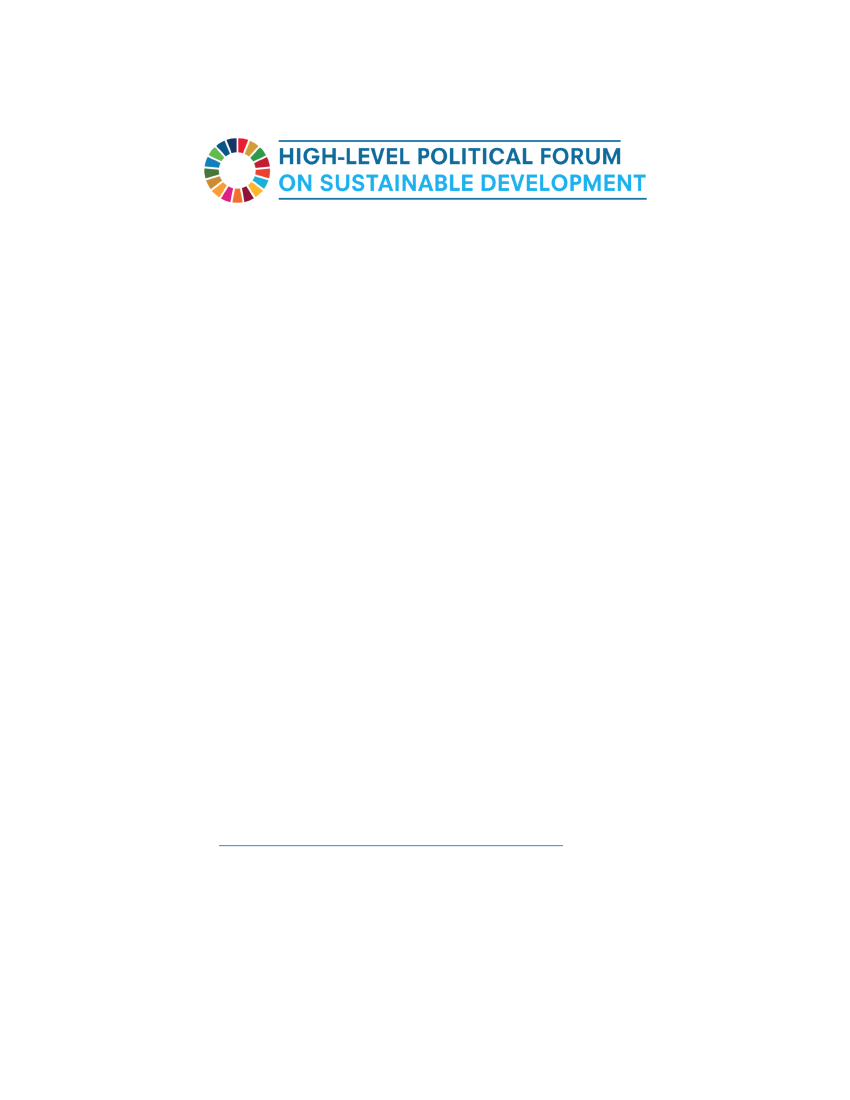
1
2022 High-level Political Forum on Sustainable Development
Concept Note
“Building back better from the coronavirus disease (COVID-19) while advancing the
full implementation of the 2030 Agenda for Sustainable Development”
Introduction
The high-level political forum on sustainable development (HLPF) will take place from
Tuesday, 5 July, to Thursday, 7 July, and from Monday, 11 July, to Friday, 15 July 2022. This
includes the three-day ministerial segment of the forum from Wednesday, 13 July, to Friday, 15
July 2022, as a part of the High-level Segment of the Economic and Social Council (ECOSOC).
With 2022, we have entered the third year of the COVID-19 pandemic, that has inflicted
unprecedented human suffering and, with its combined social, economic, and health impact,
has outpaced any other major crisis in recent history. The HLPF will take stock of the impact
of COVID-19 on the implementation of the 2030 Agenda for Sustainable Development and the
achievement of the Sustainable Development Goals (SDGs). The HLPF will also provide
political leadership, guidance and recommendations on how to advance the full
implementation of the 2030 Agenda during the Decade of Action and Delivery, as part of
ensuring sustainable, inclusive and resilient recovery from the pandemic.
The HLPF in 2022 will also conduct an in-depth review of Sustainable Development Goals 4 on
quality education, 5 on gender equality, 14 on life below water, 15 on life on land, and 17 on
partnerships for the Goals. The forum will take into account the different and particular impacts
of the COVID-19 pandemic across all SDGs and the integrated, indivisible and interlinked
nature of the Goals. The forum will also start to discuss the preparations of the 2023 SDG
Summit.
The present note outlines key aspects of the programme of the HLPF and its preparations. The
programme of the 2022 HLPF and the High-level Segment of ECOSOC is available on the HLPF
2022 website:
https://sustainabledevelopment.un.org/hlpf#hlpf2022.
Background
Human beings and societies are adaptable and have adapted to the exigencies of life in a global
pandemic, to varying degrees. Even with such adaptation, however, the pandemic has imposed
huge human costs. Large-scale economic disruption has increased the poverty, hunger and